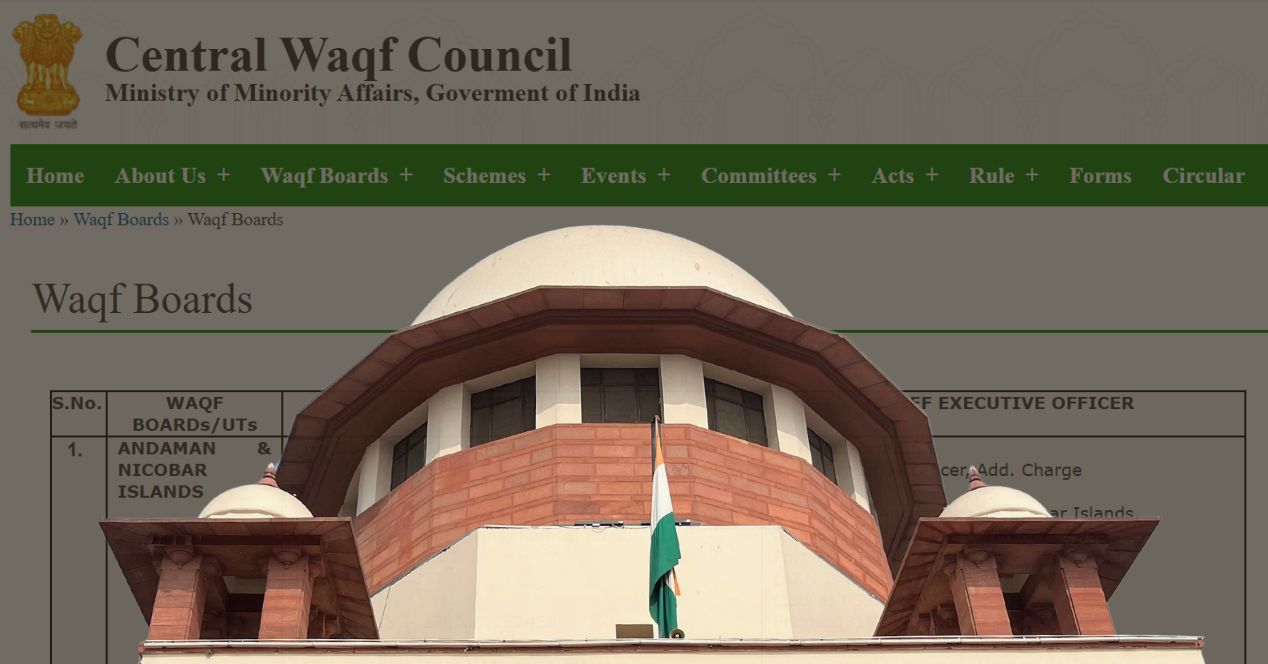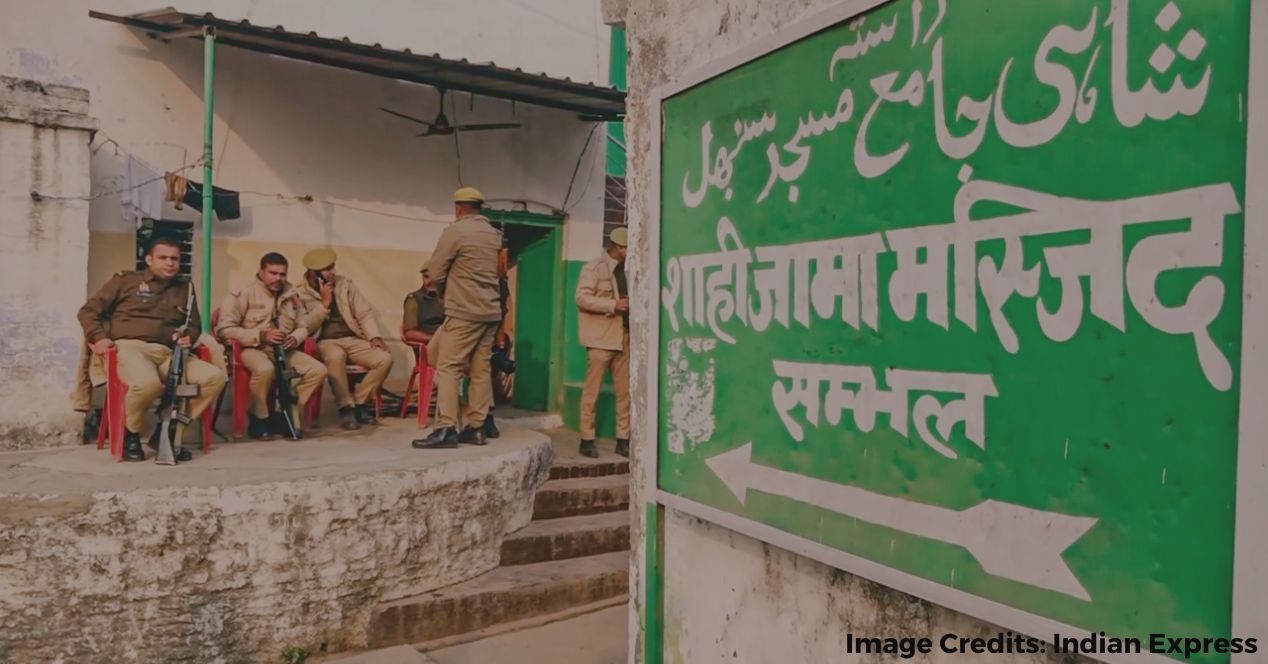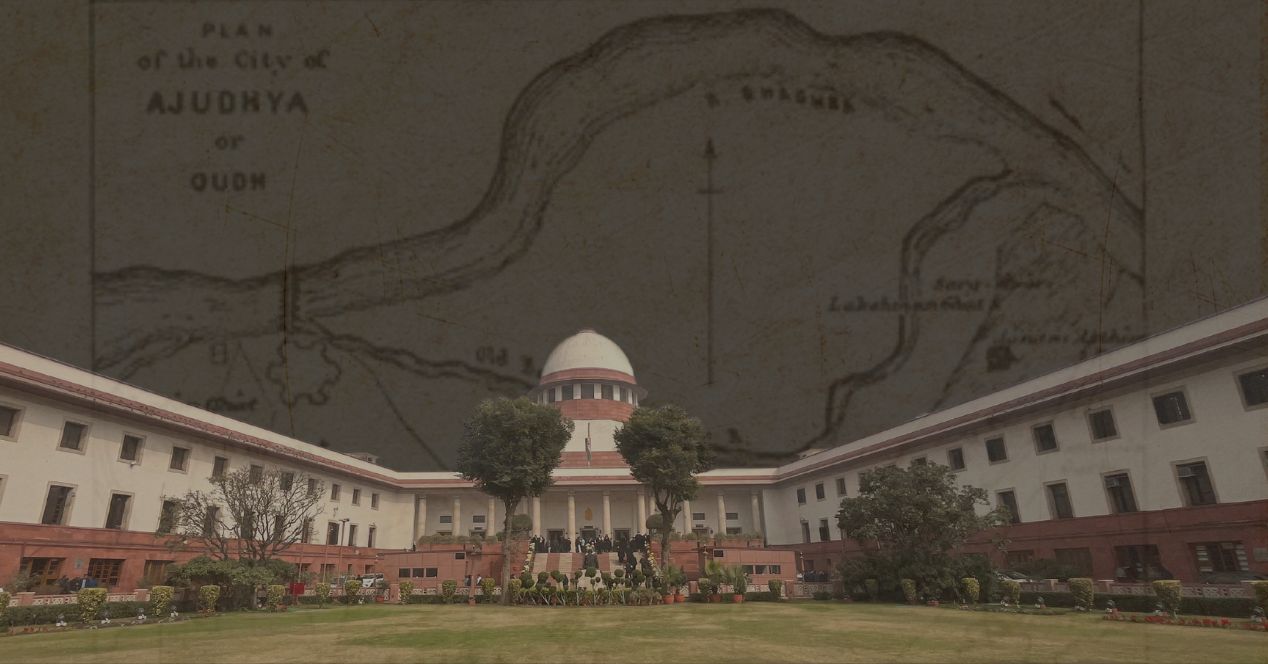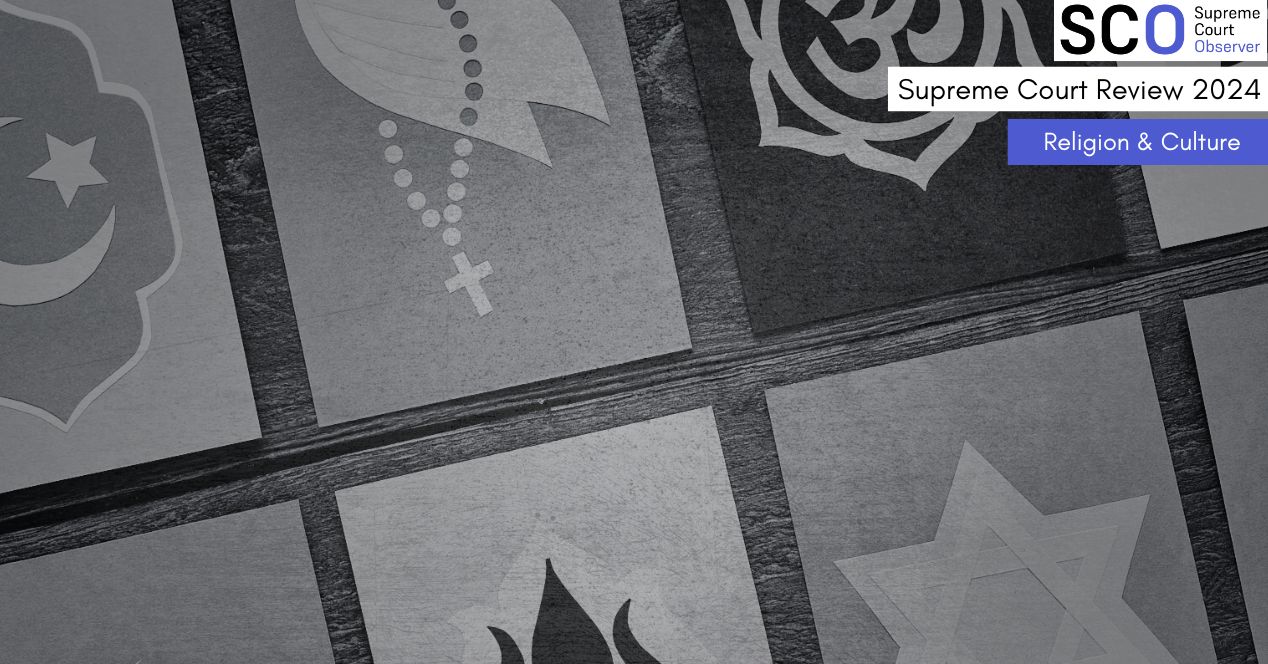Analysis
Waqf law: 10 key objections of petitioners and Union’s responses
A rundown of the key concerns raised by petitions challenging the waqf amendments in the Supreme Court and the Union Government’s responses
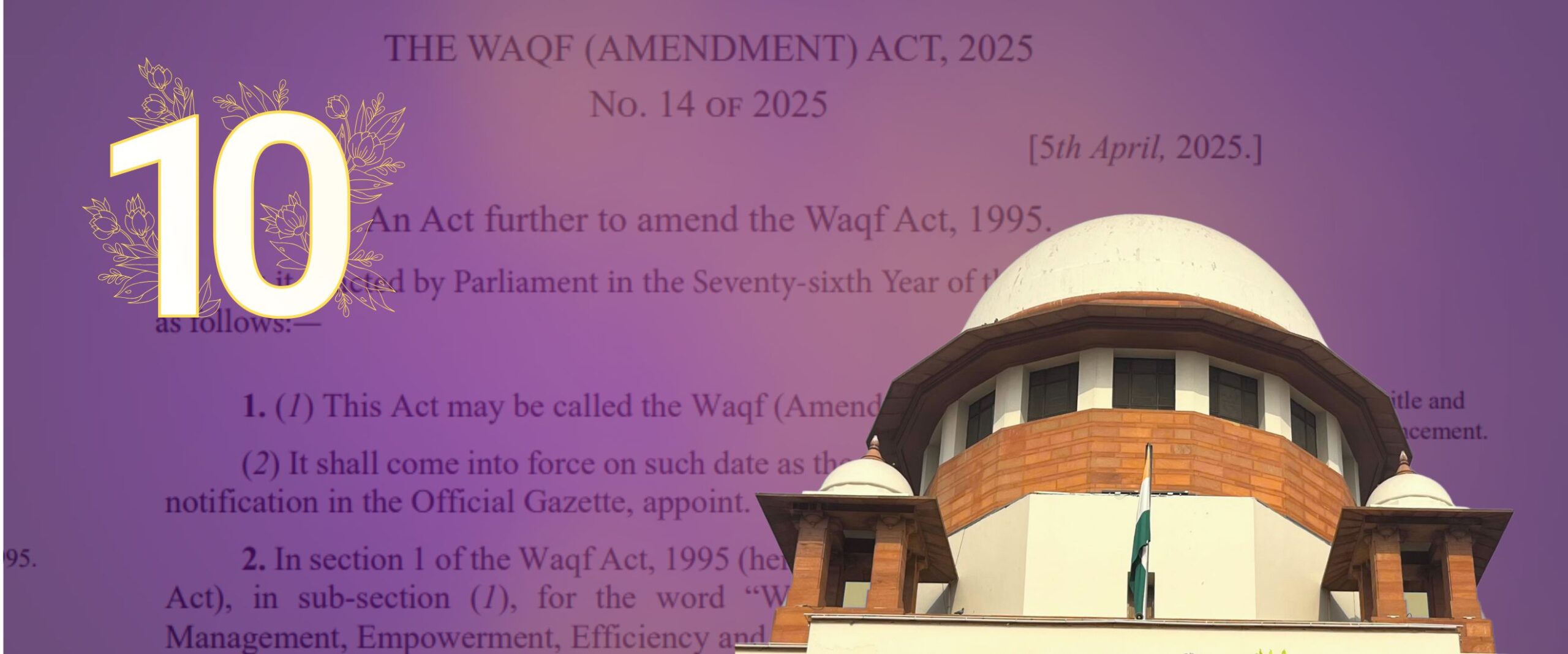
On 25 April, the Union Government submitted its counter-affidavit responding to petitioner’s contentions challenging the Waqf Amendment Act, 2025. The Union’s response came after a three-judge Bench led by Chief Justice Sanjiv Khanna chose not to stay the operation of the Act in a hearing on 17 April. The Bench had given the Union a week’s time to respond while noting that it would resume hearing the case in the week commencing 5 May.
On 17 April, the Bench had directed that there would be no new appointments to the Central Waqf Councils and the state Waqf boards. It had also ordered that there would be no change in the character and status of any waqf until the next hearing.
With nearly 100 petitions tagged to the matter, the case is shaping up to be one of the most serious constitutional challenges against a Parliamentary Act in recent years. Based on a review of some of these petitions, we’ve put together a list of 10 major grounds on which the Act’s constitutional validity is being challenged.
We’ve also summarised the Union’s responses to these contentions based on two sources: the counter-affidavit filed on 25 April and the Minority Affairs Ministry’s submission to the Joint Parliamentary Committee on the Bill (available as Annexure R-2 in the counter affidavit)
1. Restricting who can create a waqf
Provisions: Clauses 4(ix)(a) and 4(ix)(d) of the Amendment Act alter the definitions of waqf and waqif (the person creating a waqf) under Section 3(r) of the 1995 Act, requiring the waqif to demonstrate that they have practised Islam for at least five years.
Ground of challenge: This provision violates Articles 14, 15, 25 and 300A of the Constitution as it discriminates against recent converts. Further, individuals of other religions are not similarly restricted in creating religious trusts. The clause also violates the right to privacy enshrined under Article 21 as it breaches an individual’s freedom to remain silent regarding deeply personal issues or religious choices. It compels religious scrutiny into personal matters such as whether a person has prayed, fasted and made pilgrimages, infringing the right to personal autonomy.
Union’s response (from the submission to the JPC): A person who has practised Islam for five years is not expected to produce a certificate to evidence the same. A time period of five years is prescribed so that the person has reasonable time for faith in the religion. Post-independence, the legislative intent was that waqf can be made by a person professing Islam.
This was changed by a 2013 Amendment which defined it as “permanent dedication by any person, of any movable or immovable property for any purpose recognised by the Muslim law as pious, religious, or charitable and includes….”. The 2025 amendment does away with the “any person” wording and restores the pre-2013 definition of “person professing Islam”, with the effect that only a Muslim person can create a waqf.
2. Deletion of the principle of waqf by user
Provisions:
- Clause 4 (ix)(b) of the 2025 Act deletes sub-clause (i) of Section 3(r) of the 1995 Act, which recognised waqf based on long-standing public religious use, even without a written declaration.
- Clause 21(a) amends Section 36 and mandates a waqf deed for validity.
- Clause 4(ix)(e) bars invoking the principle of waqf by user in cases of disputes or government land claims.
Ground of challenge: This amendment is arbitrary, disproportionately impacts Muslim endowments and violates Articles 14, 25 and 26. The principle of ‘waqf by user’ legitimises several old waqf properties and has been recognised in the Ayodhya judgement.
Oral dedications, including those made on a deathbed, are recognised in Islamic law and practice. The new requirement will invalidate the waqf despite it being accepted by heirs and being permissible under the Islamic faith. It also excludes a large category of existing and historically recognised waqfs. The amendment also encourages frivolous litigation to harass mutawallis (caretakers) and beneficiaries of waqf properties.
Union’s response: The only mandatory requirement for being protected under the proviso is that the ‘waqf by user’ should be registered as of 8 April 2025. Registration has always been mandatory under the statute governing waqfs for the last 100 years. The concept of ‘waqf by user’ was in vogue during the period where the writing or executing deeds was a rare phenomenon. Since at least 1923, there has been a clear and mandatory legislative regime requiring registration of all kinds of waqfs. The scheme of the Waqf Act, 1954 makes it clear that it was impermissible for a waqf, including ‘waqf by user’ to exist without registration. This mandate continued in the 1995 Act.
Absence of a formal dedication creates confusion and is contrary to public interest at times. The 1995 Act provided the last window for unregistered waqfs to get themselves registered (Section 36(8)). For the last century, it has been mandatory to register ‘waqf by user’, even in absence of a waqf deed, by giving other details. Waqf deed is mandatory only prospectively.
3. Inheritance rights and waqf-alal-aulad
Provision: Clause 5 adds Section 3A(2), which states that the creation of waqf-alal-aulad (a family waqf) shall not interfere with the inheritance rights of legal heirs, including women.
Ground of challenge: The amendment renders the concept of waqf-alal-aulad meaningless. Once a waqf is created, it belongs to God and personal laws of inheritance and alienation do not apply to this land. Further, the law now allows prospective heirs to assert rights during the lifetime of the waqif, when such rights do not yet exist.
Union’s response (from the submission to the JPC): All the heirs of the waqif, including women heirs, can get a fair share in inheritance. When the line of succession ends, the benefit of the waqf reaches wider sections of society and the waqif shall be the lawful owner of the property.
4. Declaring government land as non-waqf
Provision: Section 3C(1), inserted by Clause 5 of the Amendment Act, states that any government property, even if identified or declared as waqf, before or after the commencement of this Act, shall not be deemed to be a waqf property.
Ground of challenge: The provision is vague and therefore void. The term “even if identified or declared as waqf” is an invitation for arbitrary action to reverse registration as waqf, and therefore, suffers from manifest arbitrariness and amounts to granting final relief at the interim stage. If a property is a waqf property, there cannot be a fetter placed on its treatment as a waqf while the inquiry takes place.
Union’s response: The amendment prevents unilateral classification of government land as waqf property. There are several examples to show how ‘waqf by user’ and suo moto declaration of lands as waqf by the Boards has served as a smokescreen for encroachment of government and private properties. There are repeated and documented instances where Waqf Boards had claimed title over government land, public utilities and protected monuments without deed, survey or adjudication—relying solely on the Board’s unilateral records. Collector’s offices, government schools and ASI-protected heritage sites have all been the subject of waqf claims.
It is open for the legislature to provide for an adjudicatory mechanism to decide the status of a property which is owned by the government. Due enquiry will be conducted and the principles of natural justice will be followed. The party aggrieved with the decision can approach the Waqf Tribunal under Section 83 and appeal any decision of the Tribunal in the High Court.
5. Disregard for natural justice and Tribunal powers in disputed properties
Provisions:
- Section 3C(2) states that when a dispute arises regarding whether a property is waqf or government land, it shall not be treated as waqf until a designated officer files a report.
- Simultaneously, Clause 23 removes Section 40 of the principal Act, which had empowered Waqf Tribunals to determine the status of disputed property. Now the power rests with a designated officer, typically the District Collector.
Ground of challenge: The amendment violates the principles of natural justice and nemo judex in sua causa (no one can be a judge in their own cause). It allows the government to unilaterally suspend the waqf status of a property without giving affected parties, such as mutawallis or beneficiaries, an opportunity to be heard.
Replacing the Tribunal’s adjudicatory function with executive authority through the District Collector undermines the independence of the process. Moreover, during the inquiry period, the government may transfer the land or create third-party rights, rendering the inquiry infructuous.
Union’s response: The appointment of an officer to adjudicate claims, including those of the government, is not tainted by bias. All the tax laws are administered by officers appointed by the State yet it cannot be contended that government appointees would, by definition, be predisposed to favour the government.
Claims of religious dedication over State land must be subject to strict scrutiny and cannot override the principle that government property is held in trust for all citizens equally. Government land, being categorically distinct in its ownership, control and purpose, constitutes a valid class for separate treatment under law. By protecting government land through procedural safeguards, the State fulfils its duty under Article 39(b) of the Constitution.
6. Extinguishing waqf character of ASI-listed sites
Provision: Section 3D, introduced by Clause 5, states that any property declared as an ancient monument under the Ancient Monuments and Archaeological Sites and Remains Act, 1958, shall cease to be waqf.
Ground of challenge: It violates Articles 25 and 26 by stripping the Muslim community of its right to manage religious affairs and maintain endowments. The provision retrospectively extinguishes the waqf character of centuries-old religious sites that have functioned as places of worship and religious congregation. Certain temples which are ASI-protected, such as Jagannath in Puri and Virupaksha in Hampi continue to operate under their respective religious endowment laws—given this context, the amendment discriminates against Muslim institutions in violation of Articles 14 and 15.
Union’s justification: The amendment is meant to protect ASI properties. The ASI has submitted before the Joint Parliamentary Committee that the Waqf Board restricts it from carrying out conservation and maintenance works in protected monuments. In several instances, Waqf authorities have undertaken additions and alterations to the original structures of these protected monuments, adversely affecting their authenticity and integrity.
7. Blanket disqualification of Scheduled Tribes
Provision: Section 3E, also introduced by Clause 5 of the Amendment Act, bars Scheduled Tribe members from creating a waqf.
Ground of challenge: Unlike Scheduled Caste, the status of an individual as a member of the Scheduled Tribe is not erased by professing Islam. The amendment fails to factor in that Schedule Tribes could also be Muslims. In doing so, it violates Articles 25 and 26 as it excludes an entire class of citizens from exercising their fundamental right to religious charity, dedication and institution-building. This classification is unrelated to the purpose of the Act and is antithetical to secularism. It also lacks a rational nexus with a legitimate state objective.
Union’s justification: The amendment is meant to protect tribal land and its distinct identity under Schedules 5 and 6 of the Constitution. Increasingly, there are concerns that more tribal land is being acquired by Waqf Boards.
8. Reduced Muslim representation in waqf governance
Provisions:
- Clause 10 of the 2025 Act amends Section 9 of the 1995 Act, which stated that all members of the Central Waqf Council, except the ex-officio Chairperson (the Union Minister in-charge of waqf) shall mandatorily be Muslims. Now, while ten members must mandatorily be Muslims, the remaining twelve may be chosen from any community.
- Clause 12 of the 2025 Act amends Section 14 read with Section 16(a) of the principal Act, which required all members of the Waqf Boards to be Muslims. The new provision alters the composition of State Waqf Boards such that only four out of eleven members have to be mandatorily Muslim while the rest may be chosen from any community.
Ground of challenge: These changes dilute the Muslim community’s representation in bodies meant to manage their religious endowments and violate their autonomy under Articles 14, 19, 21, 25 and 26. The amendments have the potential to reduce Muslims to a minority with no effective voice in the administration of affairs of their community’s religious and charitable trusts.
Union’s response: The Central Waqf Council, which is only an advisory body, consists of a total of 22 members, out of which a maximum of four can be non-Muslims. The non-Muslim members are in the minority.
The functions of the Waqf Board are provided in Section 32 of the Act. All the activities under Section 32 are secular activities and do not touch upon any religious activity of the Waqf. The State Boards consists of a total of eleven members, out of which a maximum of three can be non-Muslims. The non-Muslim members are clearly in the minority.
Non-Muslim members are included to improve inclusivity. Secular aspects of waqf administrations require dealing with issues concerning non-Muslims.
Article 26 does not confer an absolute right to administer a property in accordance with the tenets of religion. The Supreme Court has drawn a distinction between practices which are integral to religion and practices which, though associated with religion, are essentially of a secular nature.
The waqf regime, “which is wider and ever-evolving, requires a suitably tailored approach rather than lock, stock and barrel lifting of the religious endowment approach.” Hindu endowments concern only Hindus with little to no interaction with members of other communities.
9. Application of the Limitation Act
Provision: Clause 44 of the Amendment Act provides for the application of the Limitation Act, 1963 to proceedings concerning any claim or interest in immovable property comprised in a waqf.
Ground of challenge: This amendment defeats the purpose behind the principal Act to protect a waqf. If limitation is allowed to run against the waqf, it will threaten the long-standing principle of “once a waqf, always a waqf”. The application of the Limitation Act from the date of commencement of the amendment allows encroachers to raise claims of adverse possession over waqf lands.
Union’s justification: The amendment reduces litigation and promotes harmonisation with other laws.
10. Dilution of Tribunals’ finality and jurisdiction
Provision: The Amendment Act alters several provisions to make decisions of the Waqf Tribunals appealable to the High Courts, thereby taking away the finality accorded under the 1995 Act.
Ground of challenge: The 2025 Act deprives Waqf Tribunals of the finality granted to decisions of similar tribunals governing other religious endowments, thereby violating the constitutional guarantee of equality under Articles 14 and 15. The new appellate structure permits High Courts to reopen and rehear all questions of fact and law. It allows High Courts to substitute their judgement with that of the Tribunal—a specialised adjudicatory body equipped to deal with the nuances of Muslim personal law. It could open the floodgates for endless litigation and enable mischief-makers to repeatedly challenge decisions.
Union’s response: This will expand the scope of judicial remedies and allow for further appeals, ensuring that aggrieved parties have access to broader legal avenues.

